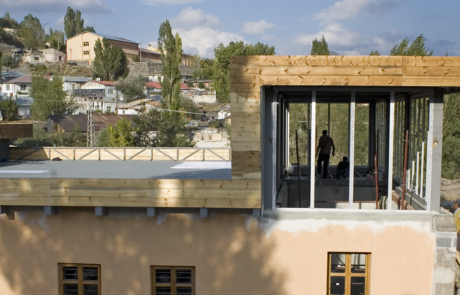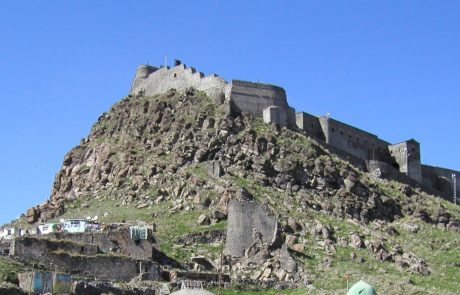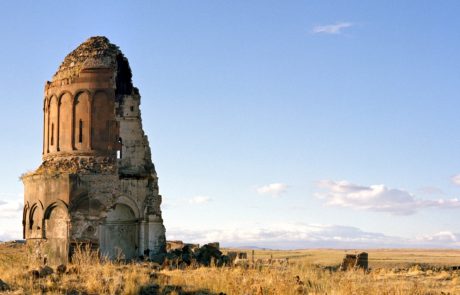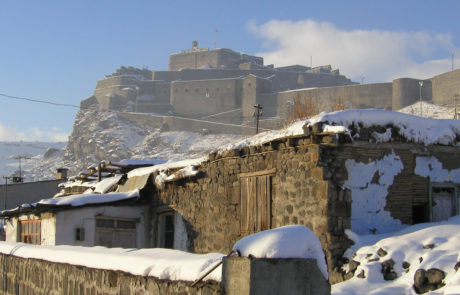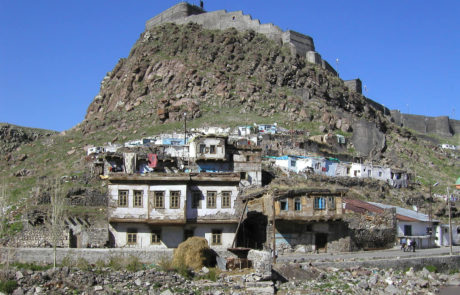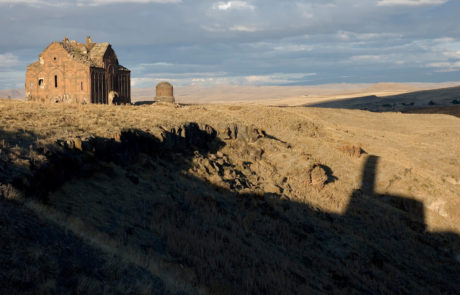Kars, Turkey
Revitalizing historic landmarks and native artisan traditions in the former seat of the Armenian kingdom
On Turkey’s extreme northeastern frontier, the historic city of Kars sits in the cradle of the southern Caucasus, closer to Yerevan, Armenia and Tbilisi, Georgia than to Istanbul or Ankara. Part of the Armenian kingdom during the 9th and 10th centuries, Kars was captured by the Sunni Muslim Seljuqs in the 11th century, the Mongols in the 13th century and in 1387 by the Turco-Mongol conqueror known as Tamerlane. Incorporated into the Ottoman Empire in 1514, Kars was later annexed by Russia in 1877–78 then finally handed back to Turkey in 1918.
These diverse cultural layers reveal themselves in the city’s built heritage at sites like Kümbet Camii (“Church of the Apostles”) a 10th century Armenian church converted into a mosque, Fethiye Camii the 19th-century Russian church with twin minarets where its original onion domes once stood and Kars Castle, an imposing 12th century citadel of the Seljuq dynasty. These impressive architectural treasures contrast starkly with the depressed economy here in one of Turkey’s poorest regions, following decades of internal strife and border conflicts.
Recognizing the potential for tourism at this crossroads where Turkey meets Georgia and Armenia as well as Russia, Azerbaijan and Iran, Global Heritage Fund sought to encourage cultural revitalization in Kars through historic preservation. We initiated the region’s first master conservation plan in partnership with Kars Municipality and Anadolu Kültür, an NGO supporting cultural programs across Anatolia.
Our collaboration focused on the Kars Historic District where two significant Turkish bath houses, Mazlumağa Hamamı and Topcuoğlu Hamamı, were cleaned and their domed roofs repaired. Modern concrete buildings were removed from the area while Ottoman-era houses in varying states of neglect and disrepair were renovated or stabilized, including Namik Kemal Evi, the former home of famed Turkish poet Namik Kemal, now a community center. These projects employed over 120 Turkish professionals and laborers. Many received international standard conservation training.
Where there was previously little civic pride in the older structures scattered around Kars, residents gained new appreciation for their Ottoman and Armenian heritage. To broaden this cultural renaissance, Global Heritage Fund invested funds in native artisan traditions in this region known for its distinct cheeses, woolens, felts and carpets. Our mission is clear, to channel Kars’ vibrant, layered history towards durable economic growth and cultural resilience for Kars that may serve too as a model for all of Eastern Anatolia.


